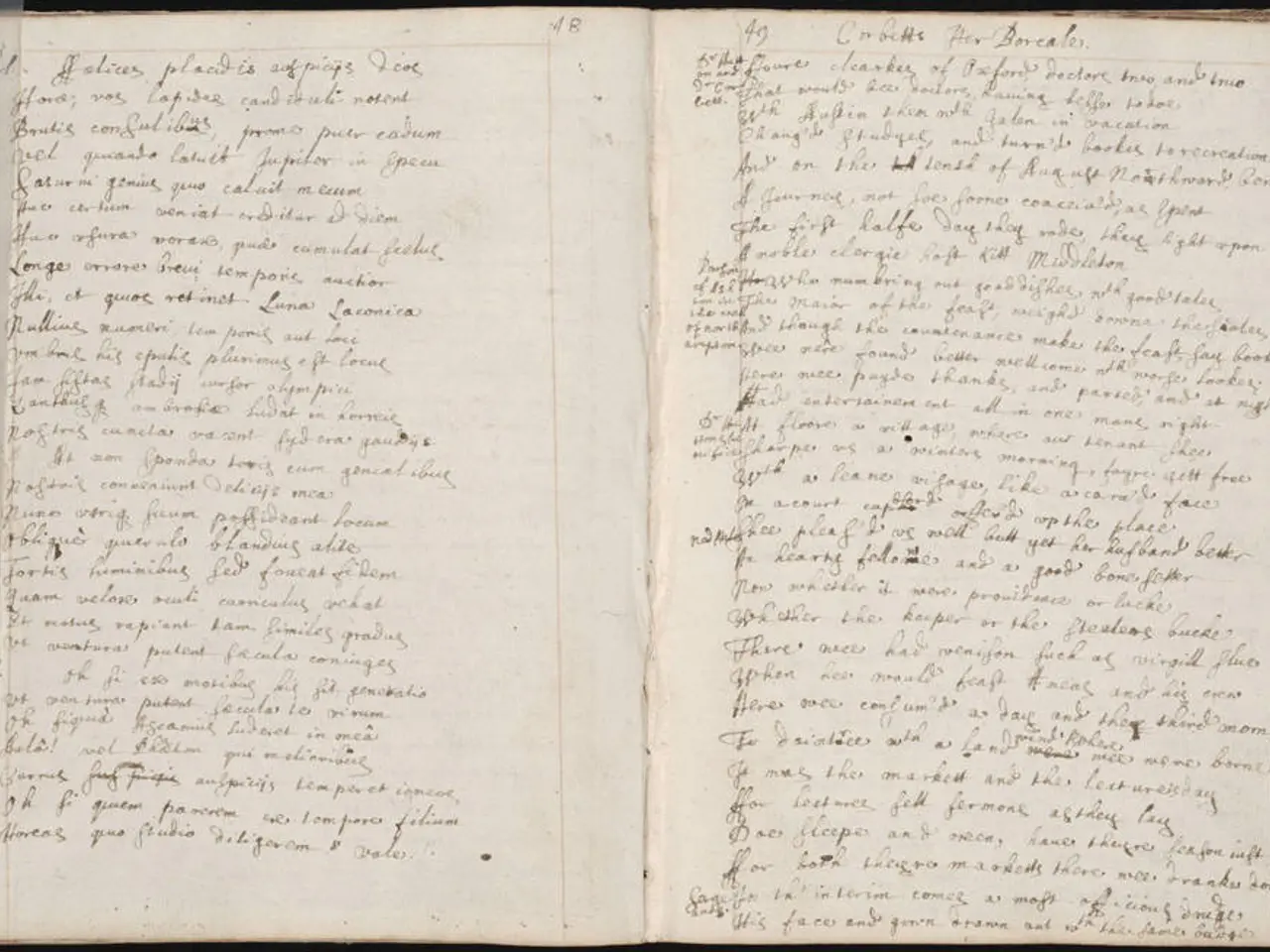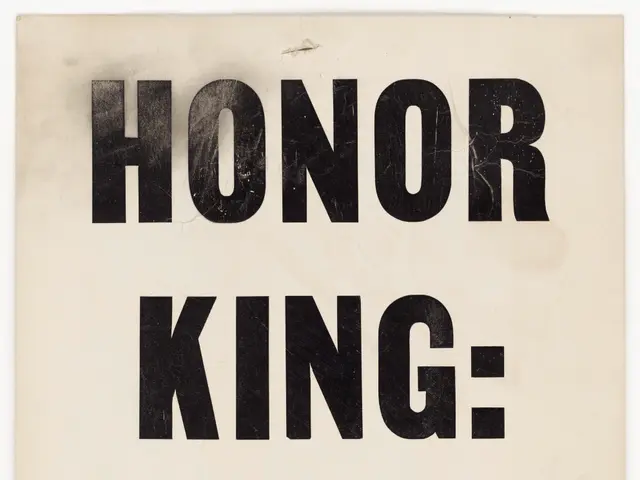Contents of Salt and Pepper Dispenser Found in Jerusalem's Administrative Buildings
In the heart of the Middle East, Palestinian residents of Jerusalem face complex daily challenges in proving their residency to Israeli authorities, primarily due to strict and sometimes arbitrary bureaucratic procedures.
To maintain their residency status, Palestinians must constantly provide extensive documentation to show they genuinely live in Jerusalem. This includes rental contracts, electricity bills, GPS logs from smartphones, grocery receipts, and school homework. Even mundane details, such as where spices like salt are kept in the home, can be scrutinized during inspections by the Israeli Ministry of Interior. Failure to “prove” residence can lead to revocation of residency rights, severely restricting their access to services and their ability to remain in Jerusalem or claim it as their home.
The bureaucratic scrutiny is conducted through home visits and phone interrogations. Palestinian Jerusalemites are subject to micro-interrogations by inspectors who ask detailed questions about everyday life to confirm residence. Unlike Israeli citizens, Palestinians do not have citizenship but rather permanent residency, which can be revoked if authorities decide Jerusalem is no longer their "primary residence" or due to alleged anti-Israel activities.
The stakes are high: since 1967, more than 14,000 Palestinians from East Jerusalem have had their residency revoked by Israeli authorities, an act considered by some human rights groups as forcible displacement. This constant threat creates significant insecurity and contributes to social and economic difficulties, such as restriction of movement between Palestinian areas and Jerusalem and difficulty accessing housing.
Palestinians in Jerusalem often refer to the government that rules over them as the "Paper State." This name reflects the importance of paperwork and documentation in their daily lives. The Israeli government unilaterally declared sovereignty over East Jerusalem and formalized it through annexation in 1980.
The population of Jerusalem is approximately 1,000,000, with around 40% being Palestinians. However, the Israeli government's overall strategy has been to continually reduce the proportion of Palestinians in the city. This has been achieved through a "quiet deportation" policy, resulting in over 14,000 Palestinians being displaced from the city and Palestine in general.
These challenges are not new. Answering mundane questions correctly is crucial for Palestinians to maintain their residency status in Jerusalem. Israeli Zionist settler-colonial violence has historically aimed at the systemic displacement of Palestinians. This practice of requiring extensive documentation is referred to as the "center of life" policy in Israeli state legalese.
Artist Khalili's artwork "Centre of Life" visualizes and describes the devilish details involved in making a life in Palestinian Jerusalem, focusing on legal procedures and the life decisions one must make to ensure access and ability to live in the city. Living under such conditions can be overwhelming, but Palestinians in Jerusalem continue to fight for their rights and their homeland.
[1] Human Rights Watch, "Israel: East Jerusalem Demolitions, Displacements Violate Rights," 2020. [2] Amnesty International, "Israel: Stop Forcible Displacement of Palestinians in East Jerusalem," 2019. [3] B'Tselem, "Israel's Policy of Dispossession in East Jerusalem," 2020. [4] OCHA, "Forced Evictions and Demolitions in East Jerusalem," 2020. [5] UNRWA, "Jerusalem: Facts and Figures," 2020.
- In the face of complex daily challenges, Palestinians in Jerusalem strive for personal growth, seeking education-and-self-development to navigate the onerous bureaucratic procedures.
- Mindfulness practices, such as meditation and goal-setting, help Palestinian residents manage the stress and anxiety caused by the constant fear of losing their residency.
- The Palestinian residents' inability to prove their residency can lead to war-and-conflicts within their own communities, as those who lose their status may become desperate and can cause unrest.
- Productivity in daily life is hindered by the time-consuming task of gathering and maintaining extensive documentation, impacting career-development opportunities.
- Job-search for Palestinians becomes challenging, especially when it requires submitting proof of residency to potential employers.
- General-news sources feature stories of car-accidents and fires that occur due to Israeli military checks and home inspections, further complicating daily life for Palestinian Jerusalemites.
- Crimes and justice for Palestinians are often overlooked or mishandled by the Israeli authorities, resulting in an injustice system that exacerbates the feelings of oppression and frustration.
- The quest for continuous learning and lifelong-learning is crucial for Palestinians to stay informed and adapt to the ever-changing bureaucratic policies.
- Skills-training programs and workshops provide Palestinians with the tools necessary to navigate the complex bureaucracy and advocacy necessary to protect their rights.
- Palestinian sports teams, such as football clubs playing in the Championship League or WNBA players, serve as symbols of hope and resilience amidst political turmoil.
- Online-education platforms offer Palestinians access to quality education and self-development opportunities, even in the face of limited physical resources.
- The ongoing political tensions in Jerusalem put Palestinians' job security at risk, making job-search a constant concern.
- Many Palestinians choose to engage in politics as a way to fight for their rights and advocate for change within their communities and society.
- As many Palestinians are displaced from their homes, they turn to online resources and forums to stay informed about weather conditions and forecasting, which can impact their safety and displacement further.
- Media coverage of accidents, fires, and natural disasters in Jerusalem highlight the vulnerability and hardships faced by Palestinians living under Israeli occupation.
- Some Palestinians have turned to sports-betting as a way to bring income and alleviate financial difficulties caused by constant displacement and unemployment.
- European leagues, including basketball, football, and tennis, feature athletes with Palestinian heritage, providing inspiration for a new generation of Palestinian sports enthusiasts.
- The ongoing struggle for Palestinian rights and self-determination is a subject of analysis by sports pundits and journalists worldwide, emphasizing the broader political implications of sports.
- Mixed-martial-arts (MMA) athletes from Palestine showcase their resilience and determination in the international arena, representing a symbol of hope and strength.
- The Israeli government's restrictive policies on Palestinian movement significantly impact their access to soccer fields, basketball courts, and training facilities, hindering sports development.
- Changing weather patterns and climate conditions, such as prolonged heatwaves, add to the hardships faced by Palestinian residents of Jerusalem, exacerbating the existing challenges.
- Laliga, the Spanish football league, features a growing number of players with Palestinian heritage, showcasing the global footprint of Palestinians in the sports world.
- In the world of NCAA basketball, Palestinians have made their mark as students and players, demonstrating the importance of education-and-self-development for Palestinian youth.
- From American football to baseball, hockey, golf, racing, and tennis, Palestinians strive for success and representation in various sports despite the political adversity they face.





